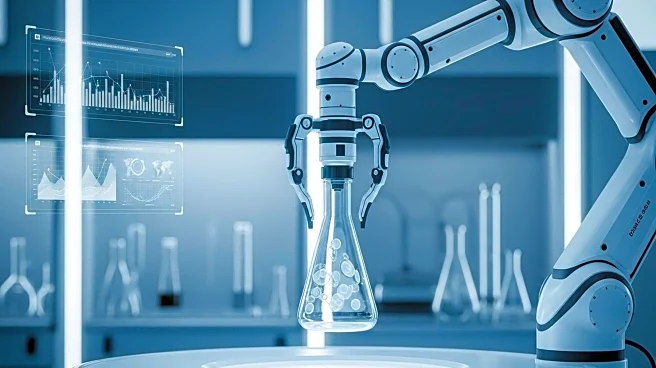What's Happening?
Multiply Labs, a robotics company specializing in automated manufacturing systems for cell therapies, has expanded its collaboration with Thermo Fisher Scientific. The partnership aims to integrate Thermo Fisher's Gibco CTS DynaCellect Magnetic Separation System with Multiply Labs' robotic platforms to automate cell therapy production. This integration is expected to accelerate critical steps in manufacturing by reducing manual intervention and improving process consistency. The collaboration builds on previous efforts to automate cell expansion and separation processes, enhancing the ability to achieve seamless, end-to-end cell processing.
Why It's Important?
The expansion of this collaboration is significant for the cell therapy industry, as it addresses the growing demand for efficient and scalable manufacturing processes. By automating complex workflows, the partnership aims to reduce costs, minimize human error, and expedite the delivery of transformative therapies to patients. This development could lead to more accessible and affordable cell therapies, benefiting healthcare providers and patients alike. The integration of robotic automation with advanced separation systems represents a step towards fully autonomous cell therapy manufacturing.
What's Next?
The collaboration will continue to focus on integrating leading GMP-ready instruments with robotic technology, aiming for fully autonomous cell therapy manufacturing. Future developments may include further automation of cell expansion and separation processes, potentially leading to new innovations in biomanufacturing. The companies are committed to advancing cell therapy manufacturing through scalable solutions, which could result in faster delivery of treatments to patients.
Beyond the Headlines
This partnership highlights the increasing role of automation and robotics in healthcare and biomanufacturing. The move towards fully autonomous systems reflects broader industry trends, emphasizing the importance of innovation in meeting the demands of modern medicine. As automation becomes more prevalent, ethical considerations regarding job displacement and the need for skilled labor in robotics and automation may arise.











